 I haven’t always been patriotic. In fact, I’m not sure I am to this day. It’s not that I don’t like my country, it’s just that the idea of the nation-state has never really resonated with me. Maybe it’s the Aquinnah Wampanoag in me that makes me feel like we belong to the land, and not the other way around. Maybe it's that I don't actually think Americans* or America is special. Or maybe it’s that I tend to associate patriotism with politics and war. For whatever reason, I've never quite bled the red, white and blue.
I haven’t always been patriotic. In fact, I’m not sure I am to this day. It’s not that I don’t like my country, it’s just that the idea of the nation-state has never really resonated with me. Maybe it’s the Aquinnah Wampanoag in me that makes me feel like we belong to the land, and not the other way around. Maybe it's that I don't actually think Americans* or America is special. Or maybe it’s that I tend to associate patriotism with politics and war. For whatever reason, I've never quite bled the red, white and blue.
I can’t remember anyone around me being overtly patriotic when I was growing up. I never went to a school where we had to say the pledge of allegiance—an idea that I always found kinda spooky, honestly. I didn’t have a lot of military veterans in my family. And to top it all off, I’m black. Let’s just be blunt—my people have some damn good reasons to have mixed feelings about what it means to be an “American.”
I was fortunate to be exposed to a lot of the ugly truths about my country pretty early on in my education. My school never made us dress up like Pilgrims and Indians and hold hands. I can’t remember not knowing that the history of the United States of America wudn’t purty. So, when we were growing up, we didn’t hate America—we just didn’t really bask in the glory of being American... and honestly, the 4th of July was just an excuse to eat chicken and blow shit up.
The truth is, my love for our team is not a result of my patriotism—it is one of the few sources of it. The first time I ever stood up with a straight face and repped hard for the USA was in 2010 at the World Cup in South Africa. Like many Black Americans who head back to the motherland, I was curious to find out just how African I would feel once I arrived. The answer was... not much. And before you get all Garvey on me, I should point out that the Africans in Africa did not think I was African either, so sit down and relax yourself. I felt the solidarity of blackness, the power of the diaspora, but I was a Black American in Africa. I can remember the feeling when the final whistle blew in our defeat against Ghana. The entire stadium erupted in cheers, except for the section behind me, which happened to have some pretty important Americans in it. At that moment I look up just to see a U.S. flag float down from the upper deck of the stadium, almost in slow motion. That flag landed on the ground in the aisle just behind my section. I shit you not: I looked at Bill Clinton, and he looked at me as if to ask, "Are you gonna let that happen?" I walked over, grabbed the flag, folded it up and tucked it away. He nodded at me and smiled. I still have that flag, the only Stars and Stripes that I own.
The beautiful thing about international soccer is that you don’t pick your team. South Africans cry for Bafana Bafana, Mexicans for El Tri, Nigerians for the Super Eagles, and Cameroonians for the Indomitable Lions (insert cheap shot about win bonuses). The sad truth is that most governments are corrupt and shady, to some degree or another. Chileans don’t think of Pinochet when Alexis Sánchez puts the ball in the back of the net, any more than Germans think of Hitler when Miroslav Klose is celebrating his record-tying fifteenth World Cup goal with an almost front flip.
It’s only natural that many Americans—and many non-Americans—have mixed feelings about any success that the U.S. national team may have. Many feel like the U.S. is already number one at so many things that it’s refreshing to see us get our asses handed to us in the world’s most popular sport. There’s even a contingent within the soccer-loving U.S. population that secretly, or openly wants us to fail. Unlike in the rest of the world, soccer in the U.S. has an ugly elitist streak. The United States is the only place that I know of in the world where the “best” players are expected to fork over thousands of dollars a year in training, tournament and traveling fees. Some of these same kids grow up to be the soccer snobs that actually enjoy the fact that they know more about soccer than their “regular” baseball-loving, hot dog-eating American peers. I think the inevitably growing popularity of soccer in America is a threat to their specialness, and they know that once the U.S wins the World Cup—which we will one day—it will all be over for them. They'll become just another unexceptional American—one of millions that love the Beautiful Game. Personally, I love being just another, average football fanatic, that happens to have been born on U.S. soil.
But here’s the thing. The tide has already turned. This World Cup, the U.S.A. was drawn into one of, if not the infamous Group of Death. Many did not expect us to advance. ESPN’s Bracket Predictor shows that only 39% of participants chose the U.S. to move onto to the next round—and that’s coming from a user population that is disproportionately biased in the favor of the U.S.. But I’m writing this post from Recife, Brazil on the eve of the USA vs Germany game, and things are looking pretty good. As I fell asleep last night listening to several English-based soccer podcasts, I braced myself for the dismissive lack of respect that I’ve become accustomed to hearing from many foreign commentators. The funny thing was, those blokes across the pond were cheering for us! And more importantly, none of them was really shocked that we are sitting pretty with 4 points and an advantage against Portugal and Ghana in goal differential and goals scored. Americans playing soccer is no longer a novelty. It hasn’t been for a long time.
I’m just glad that I’ve been on this bandwagon since 1986, when my pre-school friend’s mom called my mom to ask if I wanted to sign up to join the Oakland Soccer Club. Since then, the game has brought me so much happiness—the gift that keeps giving. I just came back from playing in our weekly pickup game around the corner, and now I’m sitting across from my homie-brother-bff, whom I really first met playing JV soccer together in high school. That's what the game means to me, and our national team is the representation of that love made real.
One of the best stories of this World Cup so far has been the dominance of the Americans—and by that I mean all of the Americans: North, Central and South. Just like I felt that Black solidarity in South Africa, I know feel an American solidarity with all the countries of the "New World." We have a lot more in common than just being somewhat randomly named after an Italian explorer who discovered absolutely nothing. In this World Cup, the United States is one of many non-European teams with a point to prove—that is American unexceptionalism. We aren't special. We aren't a novelty. We aren't number one. We are just another team that will be judged by what we do on the field. Our team has come a long way—and thankfully, our Supporters Club has too. There was no chance that I was going to associate myself with an ultras section calling themselves "Sam's Army," but the American Outlaws hold it down pretty strong.
Tomorrow I will probably lose my voice before the game even starts, and I wouldn’t have it any other way. I’ll be cheering for my team, because it’s my team, and I BELIEVE THAT WE WILL WIN.
Pura Vida,
Drew
Pura Vida,
Drew
*People from the United States call themselves “American” and sometimes that ticks a lot of Latin Americans off. After all, they are Americans too, no? That’s why they invented the word Estadounidense. But the word Unitedstatesian does not exist in English, and with all do respect to Canada, “North American” doesn’t work for me either. So, for lack of a better word, in this article I use the word “American” to refer to people from the United States.






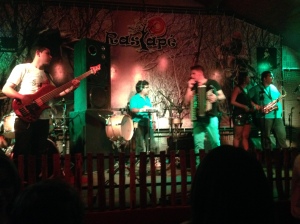
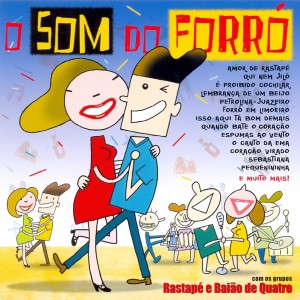 I got my first exposure to Forró over a decade ago when the Notorious D.A.D. brought back a handful of CD’s from a trip to Brazil. These are the kind of bands that you won’t find in the iTunes store or at
I got my first exposure to Forró over a decade ago when the Notorious D.A.D. brought back a handful of CD’s from a trip to Brazil. These are the kind of bands that you won’t find in the iTunes store or at 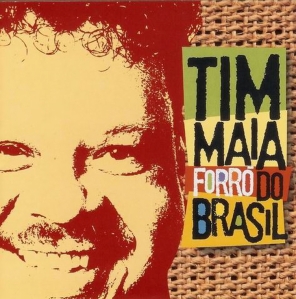
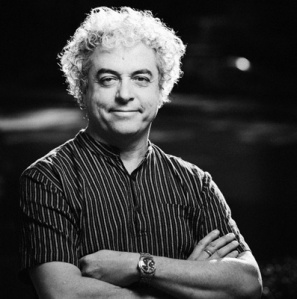 On top of the pandeiro, I tried out something that is easily 10 times more intimidating than trying to play the pandeiro—taking a class with
On top of the pandeiro, I tried out something that is easily 10 times more intimidating than trying to play the pandeiro—taking a class with 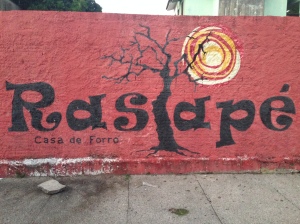
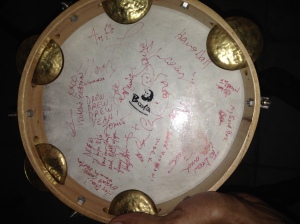 So now I know how I’ll be spending the next six weeks—that is, when I’m not watching the U.S., Colombia, and Brazil romp through each stage of
So now I know how I’ll be spending the next six weeks—that is, when I’m not watching the U.S., Colombia, and Brazil romp through each stage of 